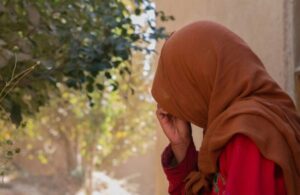KABUL (SW) – Salam Watandar has conducted a survey across 26 provinces of Afghanistan to explore the significance of role models in the lives of young people, which showed that most youths have chosen role models to guide their personal and social development.
In this survey with 647 young participants, including 370 boys and 277 girls, 84.7% of participants said they have chosen role models in their lives. The findings of this survey show that 77.9% of young people have selected their role models themselves. 54.9% of respondents chose famous and well-known people as their role models. 50.7% of young people considered progress and knowledge as important criteria, while 46.5% valued personality and ethics when selecting their role models.
82.1% of participants stated that choosing role models has had a positive impact on their lives, while 0.7% reported a negative and disappointing influence from their role models.
Tamana, a 28-year-old participant in the survey, says she chose her brother as her role model. She adds: “His actions and knowledge have become a standard for my life; his honesty and kindness are qualities that inspire me.”
Ethics, knowledge, and crisis management, with 62.5%, and success and progress, with 36.4%, have been the most significant factors in the role model selection process for young people. 54.9% of participants chose famous people, 28.8% chose family members, and 10.4% chose religious elders as their role models in life.
Ahmad Shuja, another participant, said that by choosing a role model in his life, he has achieved success. “Choosing a role model must be based on criteria, and the best criterion in selecting a role model is knowledge; having a role model in my life has had a different impact; it has eliminated my confusion and motivated me to achieve my goals.”
Zaki Ahmad, another young participant, said: “People we take as role models should be individuals who are beneficial to themselves and their community; first, individuals must know themselves, set their goals, and then follow role models.”
15.3% of the survey participants, however, said they have not chosen any role model in their lives.
Bahara, a school student, says that not having a role model has prevented her from achieving significant success in life. “I haven’t chosen a role model in my life; I think that not having one has prevented me from succeeding and continuing my studies.”
Victoria, who also has no role model, said: “I didn’t choose a role model because I didn’t find one; I hadn’t decided on finding a role model, and because of that, I didn’t make progress in my work since I didn’t have a role model.”
Some psychologists say that having a positive role model can create motivation in the lives of young people.
Sewita Habibi, a psychologist, says that young people should choose role models based on their life goals. “A role model helps young people make great progress; these role models clarify the path for them, and they can take the right steps with full belief and confidence.”
Rashed Sediqi, a sociologist, says that positive role models can guide society toward prosperity. “A role model can help societies grow and steer them toward desired goals; it can create an ideal society free from problems and challenges. In contrast, in societies where role modeling doesn’t exist, individuals must follow the lead of others and sacrifice their own abilities and creativity for the benefit of others.”
Psychologists believe that role models are crucial during youth and adolescence because selecting the right role model can significantly assist young people in their progress and success.






